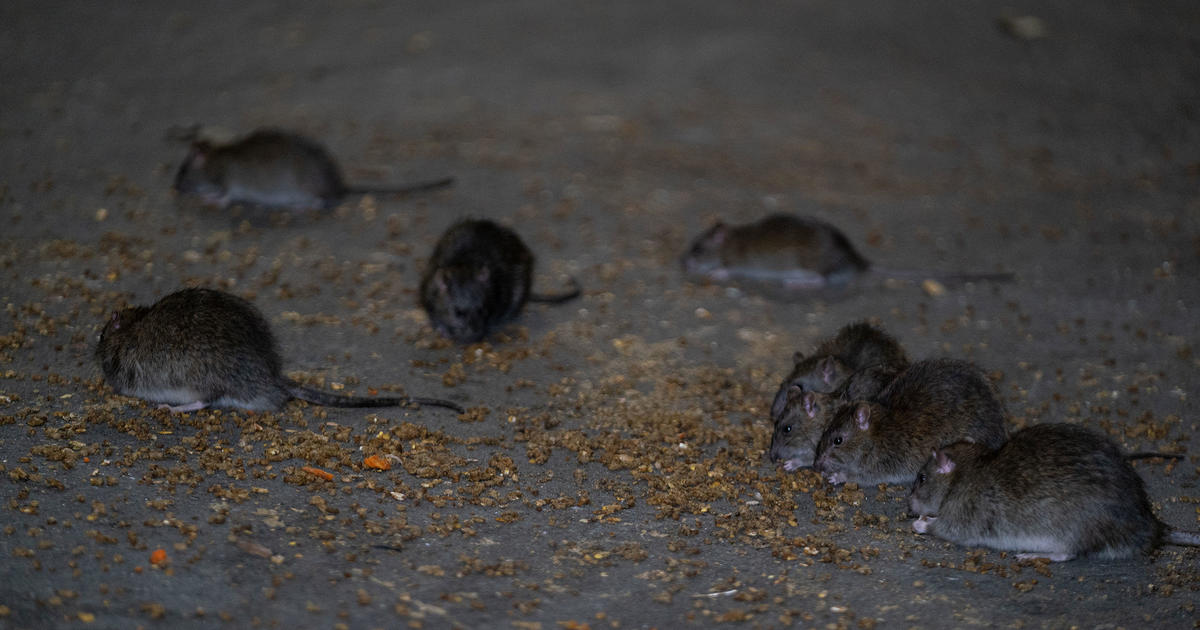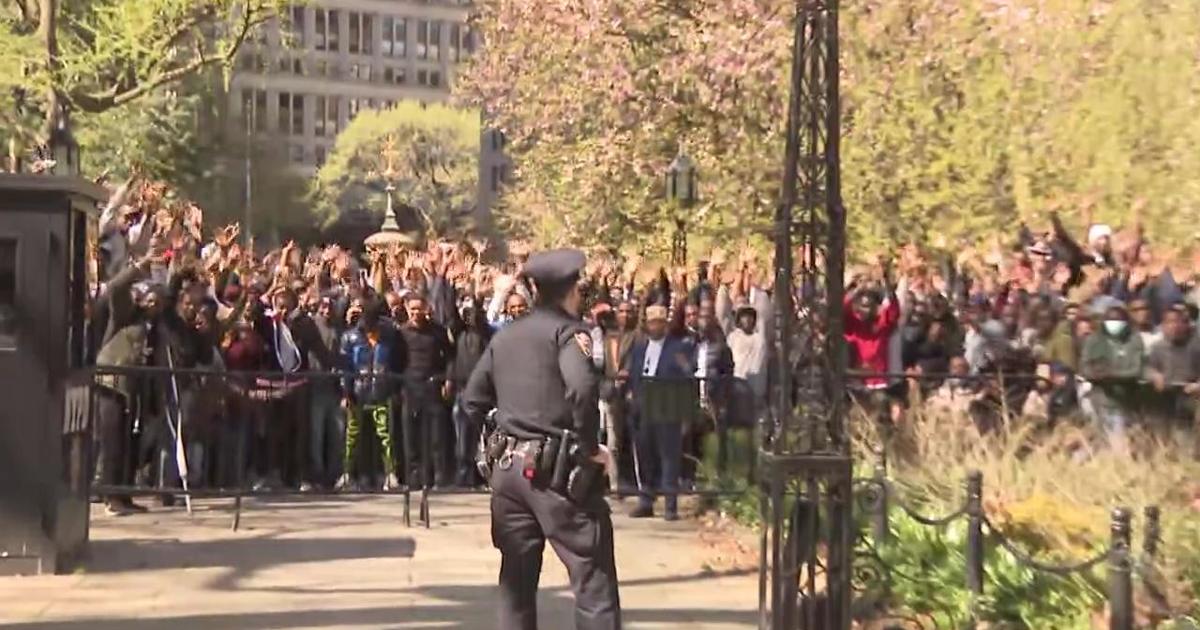Coronavirus Vaccines Being Developed By Dozens Of Companies As Part Of 'Operation Warp Speed'
NEW YORK (CBSNewYork) - In what is thought to be the Holy Grail of this COVID-19 pandemic, dozens of companies are racing to produce a vaccine that will be safe and effective at preventing the novel coronavirus infection.
But coronaviruses have been notoriously difficult to make vaccines against, and we don't know which of the many vaccine approaches will actually work. That's why federal health officials announced a new kind of vaccine Manhattan Project, called Operation Warp Speed.
The ambitious effort calls for making 300 million doses of a vaccine by the end of the year.
"We're in phase one. When you go to next phase, you work quickly to get an answer as to whether it works and is safe. And if it is, you ramp up production, you don't wait to get the answer before you start production," said Dr. Anthony Fauci, director of the National Institute of Allergy and Infectious Diseases.
CORONAVIRUS PANDEMIC
- Resources, Hotlines, Unemployment & Covering Bills
- Remote Learning Tools For Parents Teaching At Home
- Ask Dr. Max Your Health Questions
- How Make Your Own DIY Face Mask
- How To Safely Remove Disposable Gloves
- Tips For Parents To Help Kids Cope
- Chopper 2 Over Empty NYC Streets, Landmarks
- Complete Coronavirus Coverage
In other words, the government wants all of the potential manufacturers to go ahead and make their vaccines, risking that theirs will be proven safe and effective, and then be prepared to manufacture the millions of doses required.
"There's risk here. That means choosing in advance which vaccine you think will work, putting capital at risk, manufacturing it with the hope that they work," said CBS News medical contributor Dr. David Agus.
But Agus says it's also key to think forward.
Watch Jessica Layton's report --
Perhaps the vaccine furthest along in testing comes from the University of Oxford in England. That team says it has already vaccinated hundreds of people with their experimental COVID-19 vaccine and expect trial results in mid-June. At that point, thousands of volunteers will have to be vaccinated to see if they are truly protected and get fewer infections than a control group.
"The probably earliest time that we could probably scale manufacturing would be the beginning of July, but the intention is to make enough doses so that were it approved in, say, September, we would actually have 30 million doses," said Dr. John Bell, of the University of Oxford.
"It's pretty wild. I mean, this is the university that survived the plague in the 1300s. They had developed a vaccine for MERS, a former virus, that was tried in patients, did not spread the virus, so the vaccine was shelved. And they just switched out the portion from MERS to COVID-19 and put it into monkeys and challenged monkeys with the virus, After 28 days, no signs or symptoms from the virus at all," said CBS News contributor Dr. David Agus. "So, because it had already been in patients, a similar virus, they're starting out with 6,000 patients over the next six weeks."
That test phase can take many months, unless regulators are willing to conditionally approve the vaccine based on preliminary evidence.
The university is partnering with U.K.-based global biopharmaceutical company AstraZeneca to manufacture this vaccine on a large scale. Both groups have agreed to operate on a not-for-profit basis for the duration of the pandemic.
Fauci is also expressing hope about a drug called Remdesivir, which could be used on patients hospitalized with the with the virus. It's being tested now at the National Institutes of Health, although it is still early in that process.
CORONAVIRUS: NY Health Dept. | NY Call 1-(888)-364-3065 | NYC Health Dept. | NYC Call 311, Text COVID to 692692 | NJ COVID-19 Info Hub | NJ Call 1-(800)-222-1222 or 211, Text NJCOVID to 898211 | CT Health Dept. | CT Call 211 | Centers for Disease Control and Prevention
Agus spoke about the potential treatment on CBS This Morning.
"You know, mid-January was my first meeting on COVID-19, and literally every day since then, we've dreamt of the moment we could say that we have a drug that we know works. And we can say that here," Agus said. "We have something in our arsenal to treat the disease. That is exciting."
Agus said the drug has been tried on 1,000 patients and decreased hospitalizations by about four days and a declining death rate. The drug has been tried on people who are moderately to severely ill.
Agus cautioned the National Institutes of Health study hasn't yet been peer reviewed.
He called the two developments "big, big steps."
"Certainly, an amazing day in the fight against COVID-19. First positive one in a while," Agus said.
It's an optimistic and aggressive timeline, but if it happens, it would be just in time for a potential second wave of the virus.



